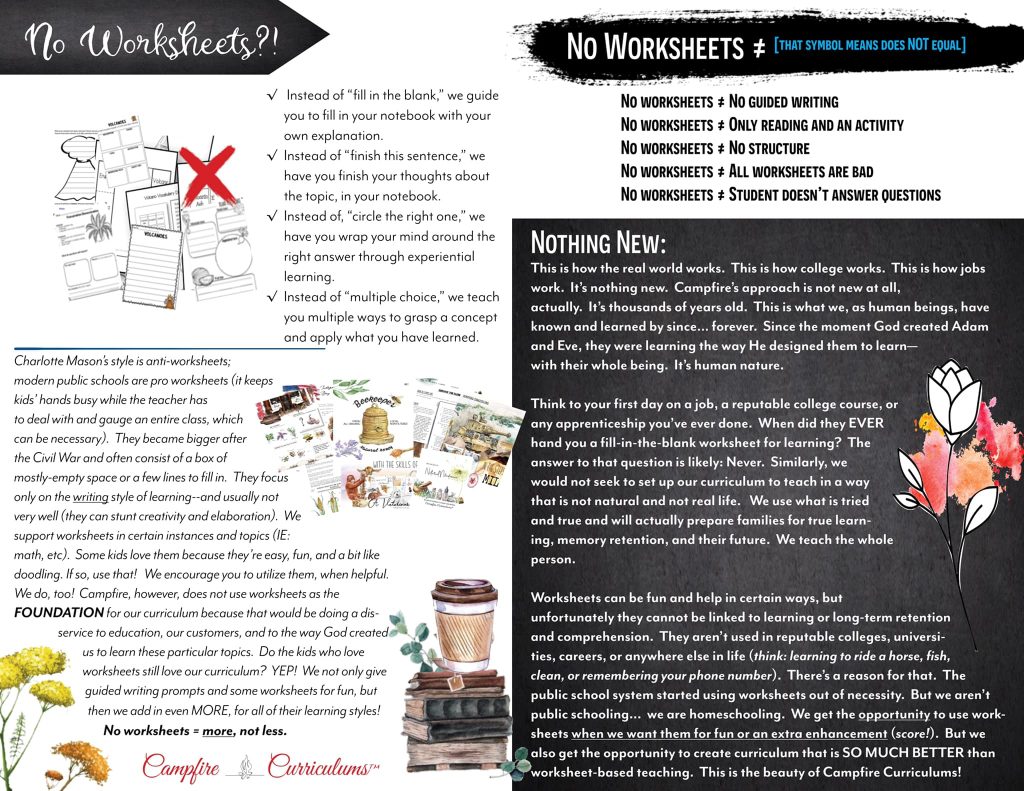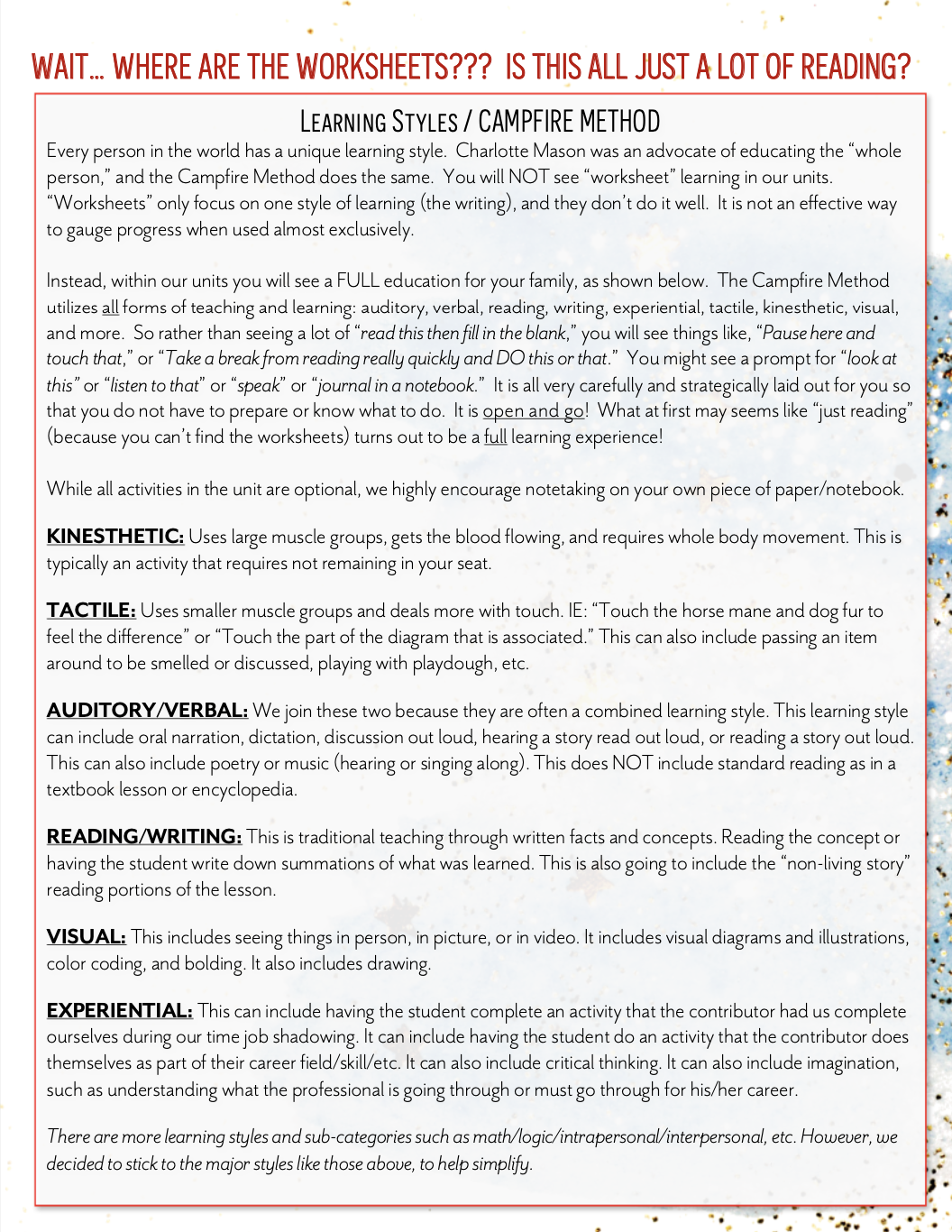WHY WORKSHEETS CAN KILL YOUR CHILD’S SCHOOLING
Most who embrace a Charlotte Mason-styled teaching approach agree there are different styles of learning: tactile, kinesthetic, experiential, auditory, visual, verbal, reading/writing, etc. And yet, for some reason, even in homeschooling, the majority of the parents gauge progress or “work” by one thing– worksheets. Students do the same as in public school: they fill out worksheets for their lesson of the day. Every. Single. Day. Worksheet here, worksheet there. Worksheet, worksheet everywhere… That’s what “solidifies” learning, right?
- Listen to the information, then fill in the blank
- Write a sentence, or write the answer to a question
Parents have had it in their heads that “worksheets” are “proof” their child learned. Worksheets are “evidence” of their child growing in knowledge or completing a lesson… worksheets for every subject. Unfortunately, in reality, worksheets only focus on the “writing” style of learning (and not very well, quite honestly). So, if this is our approach to making sure “all the school boxes are checked,” then we might want to rethink this ideology…
Most parents only use such worksheets because most curricula (even that which claims to be Charlotte Mason-inspired) doesn’t know how to properly teach without them. Worksheets can sever the relationship between the family that the Charlotte Mason style set out to foster. We are supposed to be triggering ALL areas of the child’s mind, engaging all of their being, all senses. “Filling in the blank” or “writing a sentence” is not necessarily a bad thing, as long as we place an equal or higher focus on all of the other areas, as well. Think of Jefferson, Einstein, and Ben Franklin. They TOOK NOTES (which you can and should implement regardless of what you’re learning, and we highly encourage), but then they went ALL IN (with NO worksheets, we should add). They solidified their growth through notes, observation, kinesthetic activities, auditory activities, verbal activities, tactile activities, and experience. They did NOT follow modern standards of “worksheet learning.”
And…neither does Campfire Curriculums.
What we include in our full units, instead, is directed notebook prompting, directed questions & written or dictated answers, optional spelling words, guided lessons in language arts (writer’s voice, adjective choices, directed speeches, detailed research reports, etc), etc.
It is important to note: the “activities” in our units are not just regular activities, such as you might imagine a craft at the end of a lesson. There are actual kinesthetic learning options. For example, in our ER unit, after you are learning about a tension pneumothorax, you are actually practicing putting a chest seal on someone. There are other lessons where you are actively taking someone’s pulse and checking their ROM, etc. Or, you are creating a brain model (or drawing one) for labeling and hands-on learning. In the Storm Chaser unit, you are actually keeping track of weather data and building weather tracking supplies, or you are utilizing radar to come to a conclusion on something…. In the zoologist unit, you are actually “watching” bird songs and writing them down, and also analyzing the behavior of elephants via webcam. Etc. etc. etc… So as you can see, it’s not just a “fun activity” at the end (although we DO throw in ones just for extra fun as well, because it encourages family interaction and a love of learning!). These are learning options which help solidify the content being taught. Many of our activities require nothing more than items around the house.
The units also guide you in note taking—especially the newer units. The lessons begin with reading. Then, throughout the reading, you will have prompts to “write this down in your notebook,” or “list back the five points you just read,” or “have a conversation about this…” or “Write a paragraph about ______.” Our older units didn’t “guide you” quite so much on what to write in your notes, but the same exact principle applies. This curriculum is set up so your student can take notes which is more realistic of the real-world, college, etc. You can see more about it in this graphic here:
Want to learn more about our living book style? Go here: LIVING BOOK
RETURN TO “HOW IT WORKS“


